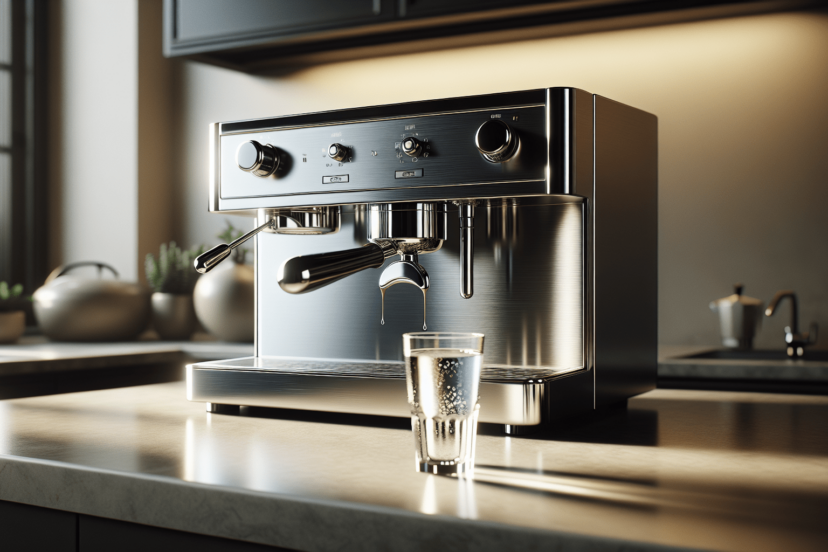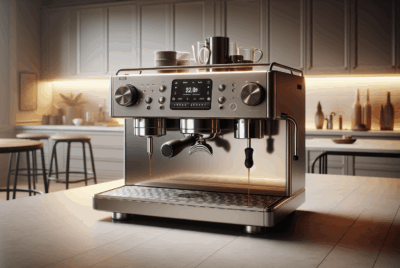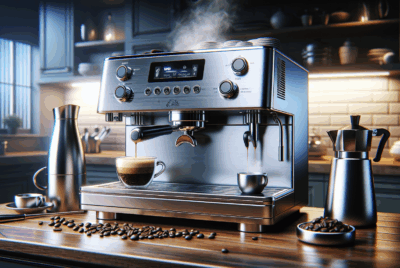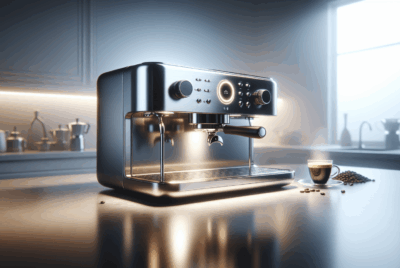Finding the Best Water Filter for My Espresso Machine
As an Amazon Associate, I earn from qualifying purchases, at no additional cost to you. Disclaimer
Have you ever found yourself staring at your espresso machine, wondering how the quality of your water affects your brew? You’re not alone. Many espresso enthusiasts overlook the importance of water quality, yet it’s one of the most crucial elements in creating that perfect cup of coffee. Today, we’re going to unravel the mystery and help you find the best water filter for your espresso machine. With a friendly approach, we’ll guide you through everything you need to know.
Click Here to Unlock Barista Secrets Here
Why Water Quality Matters for Your Espresso
Water isn’t just a backdrop in the espresso-making process; it’s the canvas upon which your coffee is painted. Approximately 98% of your espresso is water, meaning the quality of your water directly impacts the taste, texture, and aroma of your coffee. When you use poor-quality water, you risk introducing unwanted tastes and odors, which could ruin the hard work you put into selecting excellent coffee beans.
Hard Water vs. Soft Water
To grasp why filtration is essential, it’s critical to understand the difference between hard and soft water. Hard water contains higher concentrations of minerals like calcium and magnesium. While these minerals are not harmful to your health, they can impact the taste of your espresso and lead to limescale buildup in your machine. Soft water, on the other hand, has fewer minerals but might taste flat.
| Water Type | Description | Impact on Espresso |
|---|---|---|
| Hard Water | Contains higher mineral concentrations | Bitter taste, limescale buildup |
| Soft Water | Lower mineral content, often treated | Flat taste, lacks depth |
How Minerals Influence Your Coffee
Minerals in water can either enhance or detract from the flavor of your coffee. A balanced amount of calcium and magnesium can improve the extraction process, contributing to a richer, fuller taste. However, too many minerals could overpower the flavors, leading to bitterness. Therefore, filtering your water to achieve optimal mineral content is paramount.
Understanding Different Water Filter Types
There are several types of water filters available, each with its pros and cons. Understanding them will help you make an informed decision for your espresso machine.
Carbon Filters
Carbon filters are popular for home use due to their effectiveness and affordability. They work by absorbing impurities and removing chlorine, which can leave an unpleasant taste in your espresso.
- Pros: Cost-effective, easy to install, removes chlorine.
- Cons: Limited lifespan, doesn’t remove mineral content.
Ion Exchange Resins
Ion exchange filters replace calcium and magnesium ions with sodium or potassium ions. This process softens the water and can be beneficial in areas where water hardness is a concern.
- Pros: Effective in reducing water hardness, prevents limescale.
- Cons: Regular maintenance needed, can increase sodium content.
Reverse Osmosis Systems
Reverse osmosis (RO) systems are highly effective, removing up to 99% of impurities. They work by forcing water through a semi-permeable membrane, filtering out both chemicals and minerals.
- Pros: Highly effective, produces pure water.
- Cons: Expensive, removes beneficial minerals, requires a storage tank.
Distillation Units
A distillation unit boils water to produce steam and then condenses it back into a liquid—this process removes minerals and substances.
- Pros: Thorough purification, removes a broad spectrum of impurities.
- Cons: Slow process, requires significant energy.
Demineralization Filters
These filters remove minerals via special resin processes, and they are often paired with other filtration methods to restore certain minerals that improve espresso quality.
- Pros: Targeted mineral removal, works well with other filters.
- Cons: Not commonly used alone, can be complex.
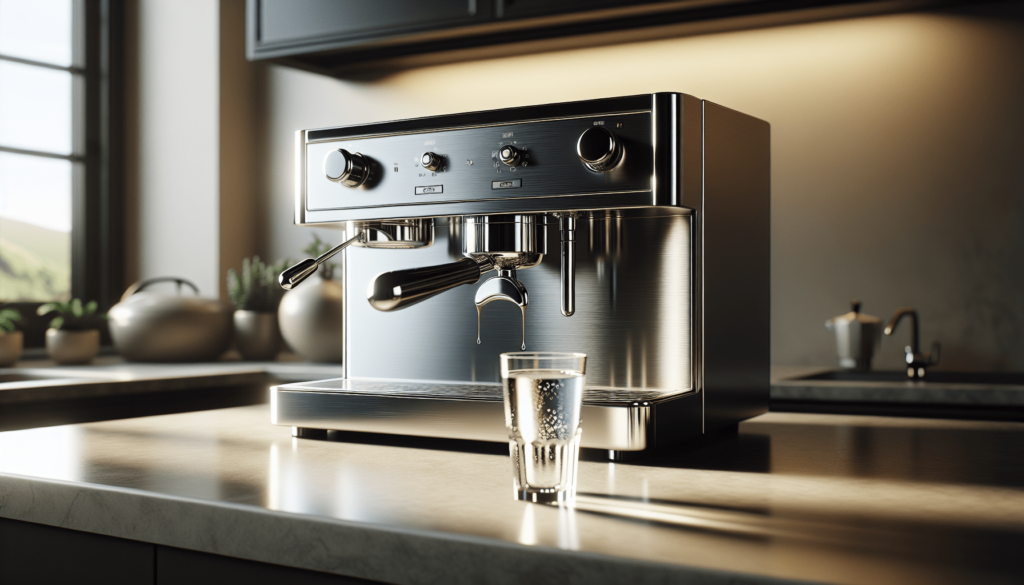
Click Here to Upgrade Your Coffee Setup
Choosing the Right Filter for Your Espresso Machine
To select the best water filter for your espresso machine, consider a few key factors.
Assess Your Water Source
Start by testing your water. Many water test kits are inexpensive and can provide a clear picture of your water’s hardness and mineral content. Knowing whether you have hard, soft, or balanced water will guide your filter choice.
Define Your Priority: Purity vs. Mineral Content
Consider whether your priority is complete purity or retaining essential minerals. If you prioritize purity, a reverse osmosis system or distillation unit may be suitable. However, preserving some mineral content can enhance the flavor of your espresso, making carbon or ion exchange filters more attractive options.
Evaluate Filter Compatibility
Not all filters are compatible with every espresso machine. Check your machine’s manual or contact the manufacturer to confirm which filter types are recommended or permissible. Using an incompatible filter could void warranties or cause operational issues.
Budget Considerations
Filters range vastly in price, from affordable carbon options to high-end reverse osmosis systems. Set a budget and consider both initial costs and ongoing maintenance expenses. Remember, investing in a quality filter can save you money on repairs and replacement parts from limescale damage.
Maintaining Your Water Filter and Espresso Machine
Proper maintenance ensures longevity and consistent performance from both your filter and espresso machine.
Regular Filter Replacement
Each type of filter has a recommended lifespan—typically measured in gallons or months of use. Regularly replacing filters will keep your water quality optimal.
Descaling Your Espresso Machine
Even with a filter, some mineral deposits can accumulate over time. Regular descaling, based on your water hardness and filter type, is essential. Most manufacturers recommend descaling every three to six months.
Conducting Routine Machine Maintenance
Check gaskets, spouts, and other moving parts regularly to ensure they’re clean and functioning correctly. A well-maintained machine complements the water filter’s job, also leading to better coffee.
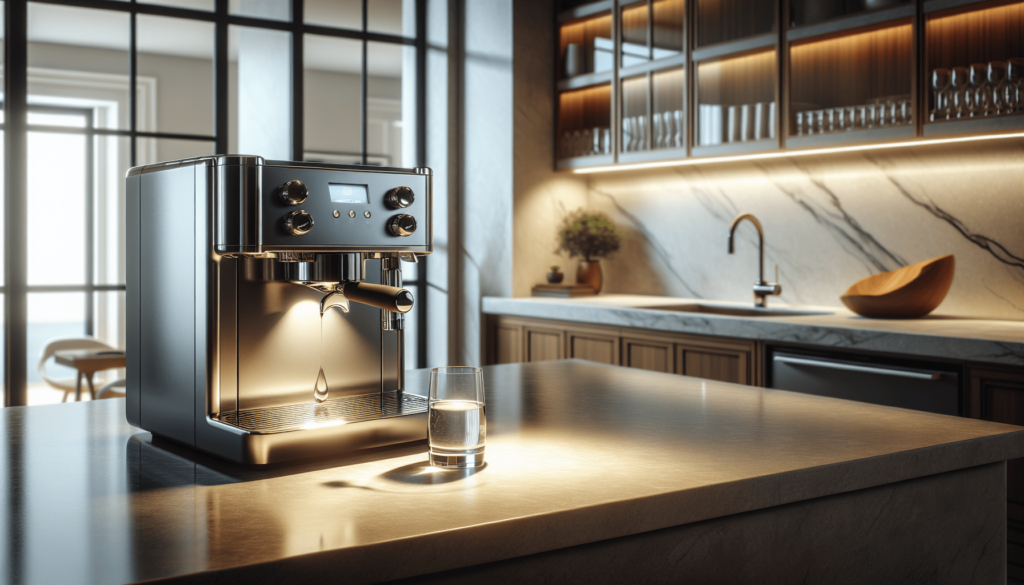
Click Here to Brew Café-Quality Coffee
Leading Brands to Consider
Several leading brands produce high-quality water filters for espresso machines. Let’s look at some of them.
Brita Filters
Brita is well-known for its reliable home water filtration products, including carbon-based filters that effectively remove chlorine and particulates.
Everpure Filters
Everpure offers a range of commercial-grade filters, ideal for serious coffee aficionados. Their systems often use a combination of technologies for optimal water treatment.
BWT Bestmax Premium
BWT focuses on balancing water mineral content, creating filters specifically designed to enhance coffee flavors while reducing scale.
3M Filters
3M provides robust filtration systems suitable for both home and commercial use, using multi-layered filtration technologies for comprehensive water treatment.
Making the Final Decision
Finding the best water filter for your espresso machine takes some effort, but it’s an investment in the quality and longevity of your coffee experience. By considering your water’s characteristics, your machine’s compatibility, and your budget, you can choose a filter that turns every espresso into a small masterpiece.
Always remember that water acts as the silent partner to your coffee beans. Its role may seem understated, but without the right balance, even the best beans and machines can fall short. A properly selected and maintained water filter enhances not just the taste of each cup but the entire espresso-making ritual.
In the end, it’s not only about the filter itself but how you incorporate it into your daily coffee routine. With the right knowledge and tools, each cup of espresso can be not just good, but exceptional. Enjoy the journey to brewing perfection, one cup at a time.

